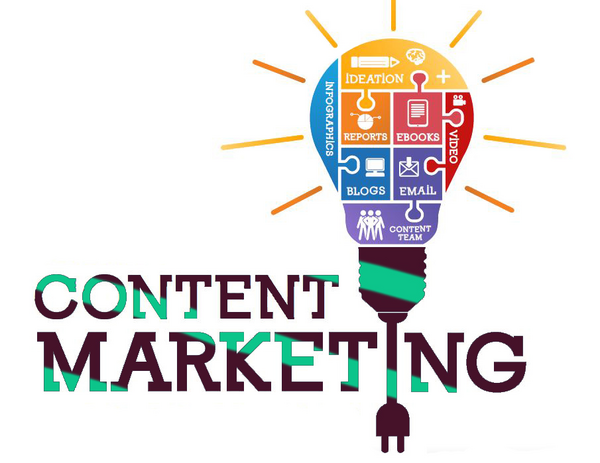Marketing is an essential aspect of any business’s success, but the strategies have evolved significantly over the years.
Traditionally, marketing involved conventional channels such as TV, radio, and print advertisements. However, with the rise of digital platforms, content marketing has emerged as a dominant strategy, offering unique benefits that go beyond traditional methods.
Understanding the differences between content marketing and traditional marketing is crucial for businesses seeking to adapt to changing consumer behavior and maximize their marketing ROI.
What is Traditional Marketing?
Traditional marketing refers to the time-tested methods of advertising that businesses have used for decades.
This includes print media (newspapers, magazines), broadcast media (television, radio), direct mail, and billboards.
Traditional marketing is typically one-directional, focusing on pushing messages out to a broad audience in the hopes of converting them into customers.
Key Characteristics of Traditional Marketing:
- One-way Communication: Traditional marketing delivers a message to a wide audience without encouraging interaction. Advertisements are designed to capture attention, convey a promotional message, and lead to an immediate action, such as buying a product.
- Broad Reach: These ads are often placed in areas with high visibility, such as billboards or prime-time TV slots, aiming for maximum exposure to the target demographic.
- High Cost: Traditional marketing can be expensive. For example, TV and radio spots, magazine spreads, and billboard placements often require significant budgets.
- Short-lived Impact: Once the ad run is over, its impact typically wanes, especially if it hasn’t left a lasting impression on the audience.
Traditional marketing is effective for building brand awareness and reaching a large audience quickly, but its approach is less targeted and harder to measure accurately in terms of returns.
What is Content Marketing?
Content marketing, on the other hand, is a strategic approach focused on creating valuable, relevant, and consistent content to attract and engage a specific audience.
Rather than disrupting consumers with ads, content marketing seeks to provide information, educate, entertain, or solve problems.
This makes it more of a pull strategy, drawing customers to the business organically.
Key Characteristics of Content Marketing:
- Two-way Communication: Content marketing encourages interaction, such as comments, shares, and discussions. It nurtures relationships with the audience, creating a sense of community and trust.
- Targeted Reach: Instead of aiming for a mass audience, content marketing targets a specific niche. Whether it’s a blog post, social media update, or video tutorial, the content is crafted to appeal to a well-defined audience segment.
- Cost-effective: While it can be resource-intensive to create high-quality content, content marketing is generally more affordable than traditional methods, especially when considering its long-term benefits.
- Long-lasting Impact: Content has a longer lifespan than traditional ads. Evergreen content, such as how-to guides or informative articles, can continue to attract visitors and generate leads months or even years after it’s published.
Content marketing thrives on delivering consistent value, which builds loyalty and establishes a brand as a trusted resource.
This makes it an excellent tool for long-term engagement and brand building.
Key Differences Between Content Marketing and Traditional Marketing
- Approach: Traditional marketing takes a “push” approach, broadcasting messages to a broad audience. Content marketing, by contrast, uses a “pull” approach, attracting audiences through valuable and relevant content.
- Focus: Traditional marketing focuses on promoting a product or service, often using direct calls to action. Content marketing focuses on the audience’s needs, aiming to educate, inform, or entertain rather than overtly sell.
- Engagement: Traditional marketing is typically one-sided, delivering messages without encouraging feedback. Content marketing, on the other hand, is conversational, designed to engage audiences and build relationships over time.
- Cost: Traditional marketing often requires a substantial upfront investment for ad placements, while content marketing can be more cost-effective, particularly when using owned channels like blogs or social media.
- Measurability: It’s easier to measure the performance of content marketing through digital metrics such as traffic, engagement, and conversions. Traditional marketing’s effectiveness can be harder to quantify, relying more on estimates of reach and visibility.
Why Choose Content Marketing Over Traditional Marketing?
For businesses today, content marketing offers a modern, effective alternative to traditional methods.
With the growing use of the internet and social media, customers are more informed and have higher expectations from brands.
They seek out information and solutions rather than waiting for ads to tell them what they need.
Content marketing meets these expectations by providing valuable, customer-centric content that helps in every stage of the buyer’s journey.
Whether it’s a blog article that educates potential customers, a video that entertains and engages, or a case study that demonstrates value, content marketing speaks directly to what the audience wants.
In contrast, traditional marketing has its place but is less adaptable to the nuances of digital consumer behavior.
While it can still be effective for building broad awareness, it struggles to achieve the depth of engagement and long-term trust that content marketing excels at.
Integrating Content Marketing and Traditional Marketing
It’s worth noting that content marketing doesn’t have to replace traditional marketing. The two can work in tandem to amplify each other’s strengths.
For example, a TV ad (traditional marketing) can drive viewers to a brand’s website, where a library of informative articles or engaging videos (content marketing) continues the conversation, providing more value and nurturing the relationship.
By integrating both strategies, businesses can enjoy the broad reach of traditional marketing combined with the targeted engagement and cost-effectiveness of content marketing.
Conclusion
In today’s marketing landscape, businesses need to think beyond traditional advertising.
Content marketing offers a unique opportunity to connect with audiences in a meaningful way, providing value rather than interruption.
While traditional marketing still has its role, the growing preference for customer-centric strategies makes content marketing an essential tool for modern businesses looking to build trust, credibility, and long-term success.



